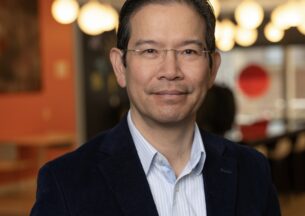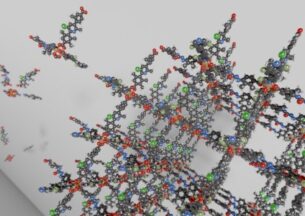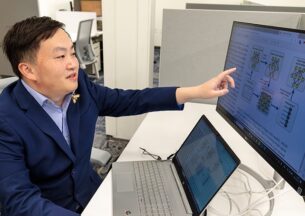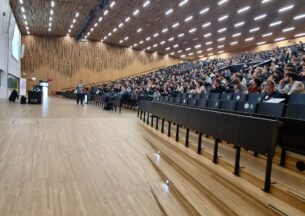Three UChicago CS Students Receive Harper Dissertation Fellowships
The William Rainey Harper Dissertation Fellowship is the highest honor awarded to UChicago graduate students, given in the final year of graduate study to help students concentrate on thesis completion. In 2018 and 2019, a single UChicago CS PhD student received the honor, but this year brought a bumper crop to the department, with three Harper Fellowship recipients studying in the Department of Computer Science.
Yongshan Ding, Junwen Yang and Leonardo Coregliano (a joint Math-CS student) each received the Harper award, which bestows $4,000 to graduate students conducting groundbreaking research and entering their last year of dissertation work. Their projects, with UChicago CS faculty Fred Chong, Shan Lu, and Alexander Razborov, span from the architecture of quantum computers and the performance of database-backed web applications to the theoretical underpinnings of computer science and mathematics.
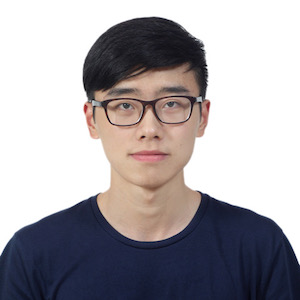
Yongshan Ding: Designing Tomorrow’s Quantum Computers
Quantum computing is one of the fastest-growing sub-fields of computer science. Graduate students studying the design, programming, and applications of this new paradigm, such as Yongshan Ding, have the unique opportunity to shape this young field from the very beginning.
“I am fascinated by how computers are wired to solve complex problems in daily life, so I want to do the same for quantum computers,” Ding said. “I feel fortunate to be among the first to design the first-generation practical quantum computer systems.”
With the research group of Fred Chong, Seymour Goodman Professor of Computer Science,
Ding tackled several critical questions for designing practical quantum computers, such as understanding and stabilizing noise in quantum systems, and creating efficient compiling of quantum programs. Additionally, Ding taught a graduate seminar with Chong and co-authored a textbook, Quantum Computer Systems: Research for Noisy Intermediate-Scale Quantum Computers, that will be published this summer.
“I would strongly recommend teaching one’s research subject, as I personally have benefited tremendously from co-teaching quantum computing with my advisor,” Ding said. “The teaching experience was incredibly valuable to me, including the content preparation, the lecture presentations, and the discussions with many talented minds in class. Rather than taking one's time away from research or paper-writing, teaching can actually inspire and accelerate research.”
Ding’s well-rounded talents make him well suited for a field that blends so many different disciplines of knowledge, Chong said.
“Yongshan is the best of a much needed new breed of computer systems researchers in quantum computing, with expertise in theory, systems, and physics,” Chong said. “His research has been and will be instrumental in enabling practical quantum computing in the near future, adapting algorithms and system software to physical-device properties. Yongshan is both a stellar researcher and a passionate educator.”
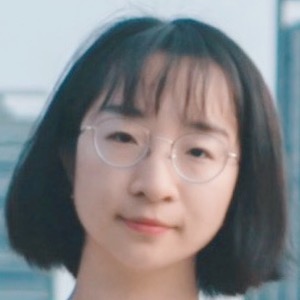
Junwen Yang: Detecting and Fixing the Web’s Toughest Bugs
Most of today’s most popular websites sit on top of massive databases, increasing both their functionality and the opportunities for site-breaking bugs. Junwen Yang’s research in the group of Professor Shan Lu creates new methods that help developers detect and avoid the many things that can go wrong with these complex, interactive applications.
“Nowadays, database-backed software is widely used for online shopping, social networking, and many other sites, where increasingly huge amounts of user data are managed and processed,” Yang said. “The performance and correctness of these software systems are crucial to people’s daily life. My thesis aims to build tools to help improve the performance and correctness of big-data software.”
Yang’s papers on this topic have developed techniques to tackle a wide range of performance problems, and detected and fixed thousands of performance issues in the latest versions of popular web applications along the way. One new approach for automatically designing high performance web applications earned Yang and her co-authors the Distinguished Paper award at the 2019 ICSE meeting, and her work was also recognized with the 2019 John Vlissides Award from SPLASH, the ACM SIGPLAN conference on Systems, Programming, Languages, and Applications: Software for Humanity.
“Junwen's award-winning research has helped the software industry and research community understand the challenges and opportunities in improving the performance of web applications, something that affects everybody's daily life, through a novel approach that combines software engineering, program analysis, database, and interface design techniques,” Lu said. “Junwen has been a great leader in her research projects so far and I expect her to finish an excellent Ph.D. thesis and accomplish great things after her Ph.D.”
Yang thanked the Department of Computer Science for their support, highlighting the move to Crerar, the infusion of new faculty with a range of expertise, and the access to the right tools for her research.
“The department and university provides us with excellent computing resources, ranging from our powerful desktops to the likes of the Research Computing Center and Chameleon Cloud,” Yang said. “These resources are highly flexible and easy-to-use which enabled me to conduct the experiments with peace of mind. Further, tech staff in the department are nice and responsive and helped me a lot in resolving infrastructure issues related to my research.”
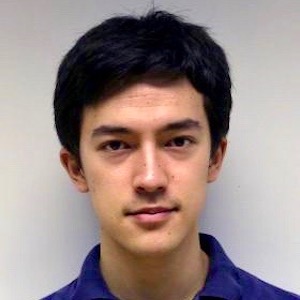
Leonardo Coregliano: Bridging Math and Computer Science
Leonardo Coregliano is a joint Math-CS PhD student who studies combinatorics, a branch of mathematics critical for graph theory, algorithm design and analysis, and other areas of computer science. His dissertation focuses on three applications of limit theories to problems in extremal combinatorics, including “natural” quasirandomness properties, Sidorenko's Conjecture, and a generalization of the Erdős–Stone–Simonovits and Alon–Shikhelman Theorems.
“What attracted me to theoretical computer science, more specifically to combinatorics, and is still one of the most interesting aspects of it in my opinion is the fact that it touches so many areas of knowledge,” Coregliano said. “First, combinatorics draws its problems from many different fields ranging from algorithms to theoretical physics. Second, solving combinatorics problems often involve using different techniques ranging from something as simple as linear algebra to as complicated as ultraproducts.”
With Razborov, he developed the theory of theons — a semantic/geometric version of dense limit theory for general combinatorial objects that complements the theory of flag algebras, a syntactic/algebraic approach.
“Leonardo is an incredibly gifted student in the joint Math-CS PhD program working on the interface between the two disciplines,” Razborov said. “A significant part of his research is devoted to understanding the limit behavior of huge combinatorial objects, a subject promoted by many exceptional scientists including Diaconis and Lovász. I feel honored and privileged working with Leonardo, perhaps occasionally slipping in an advice or two in the process.”
Though split between two departments, Coregliano specifically complimented CS for the wide variety of advanced graduate classes that explore recent research in different topics, and for how the new location in the Crerar building boosted student interaction. He credited that atmosphere, and the support of his advisor, with giving him the confidence to tackle complex questions on the frontiers of theoretical computer science.
“Most of the time, we underestimate our own abilities and knowledge and it may seem that we do not stand a chance on solving a complicated problem,” Coregliano said. “That being said, one of the most important steps in research is letting go of one's insecurities and simply giving it a try.”



